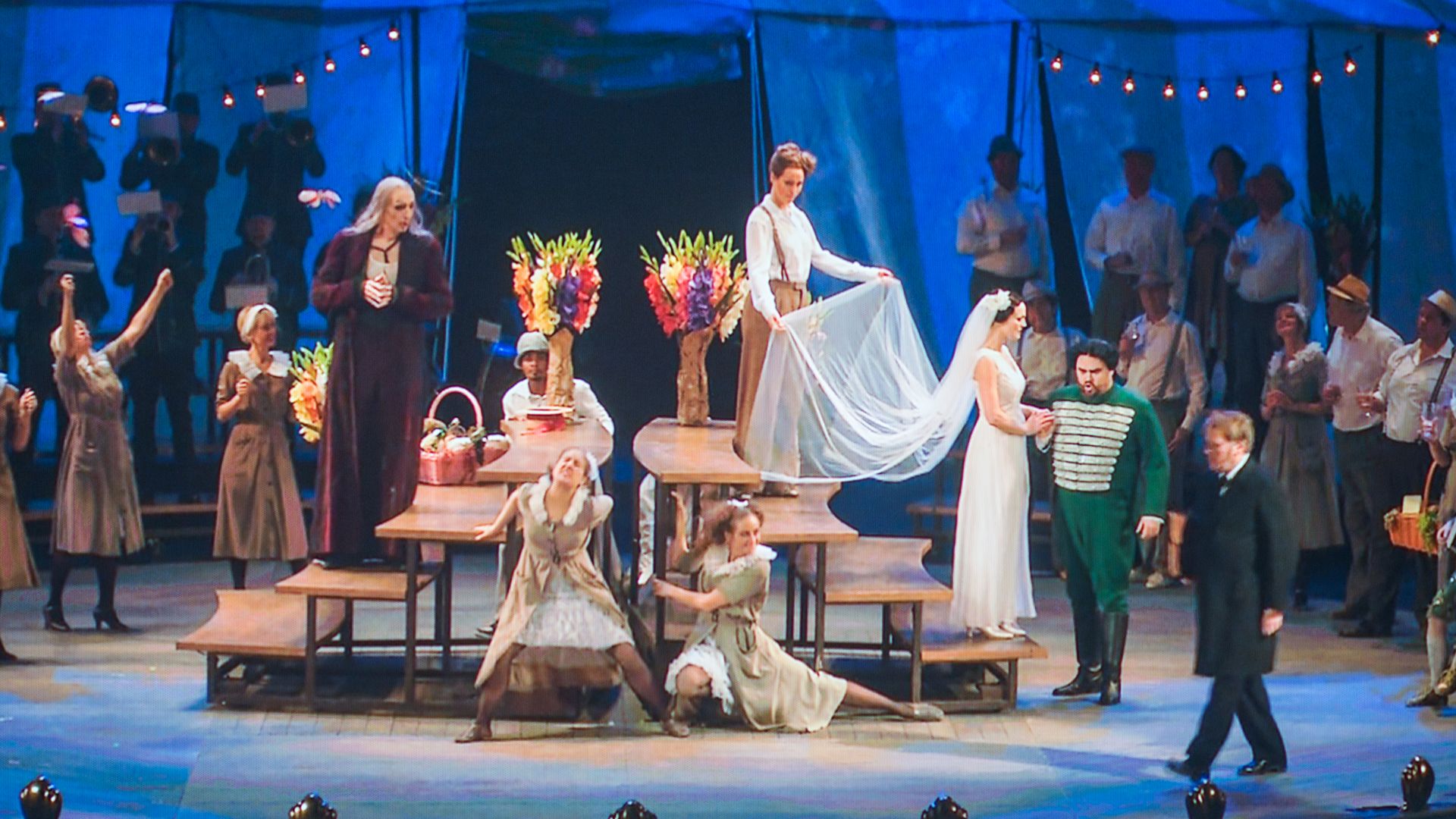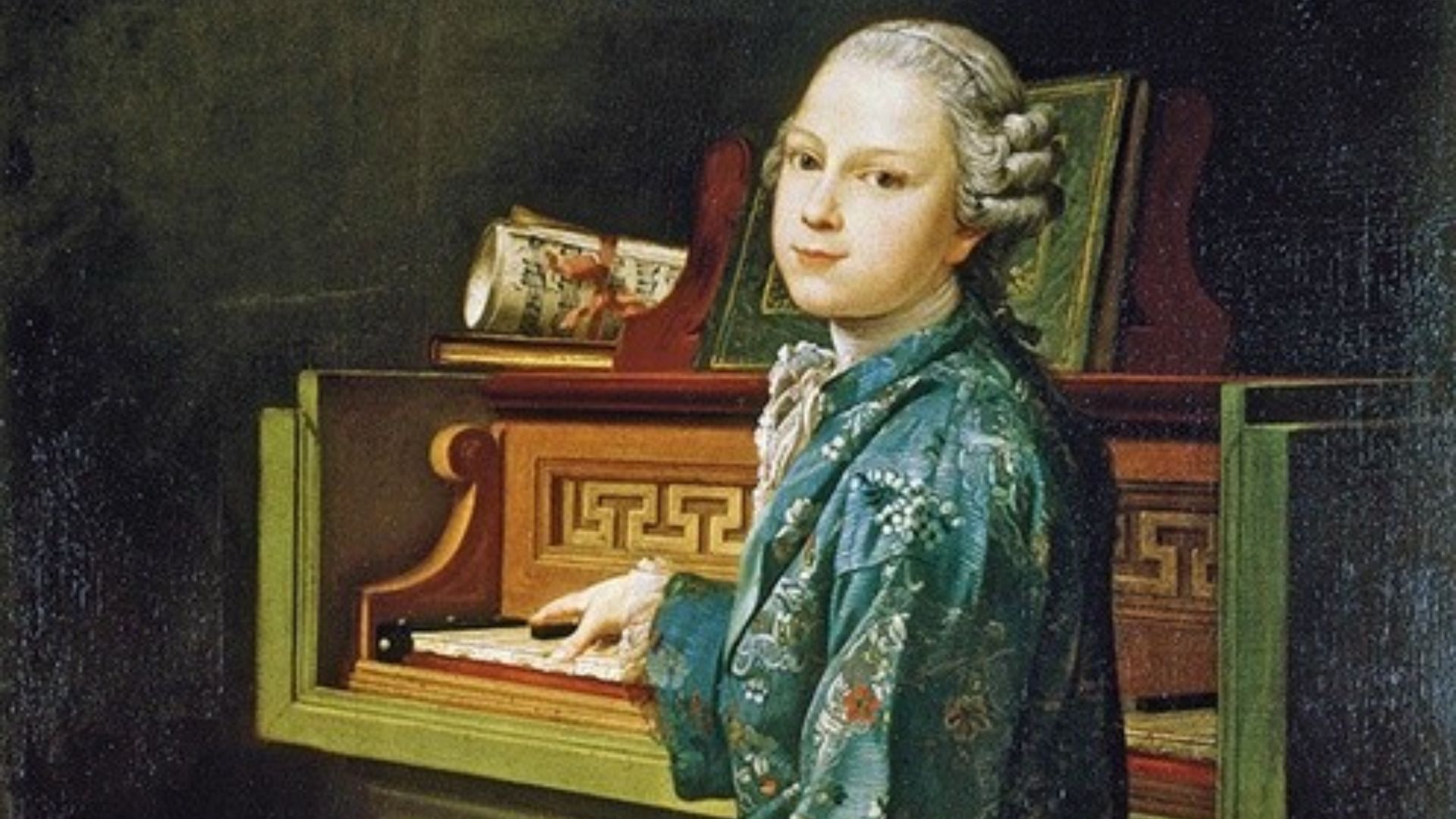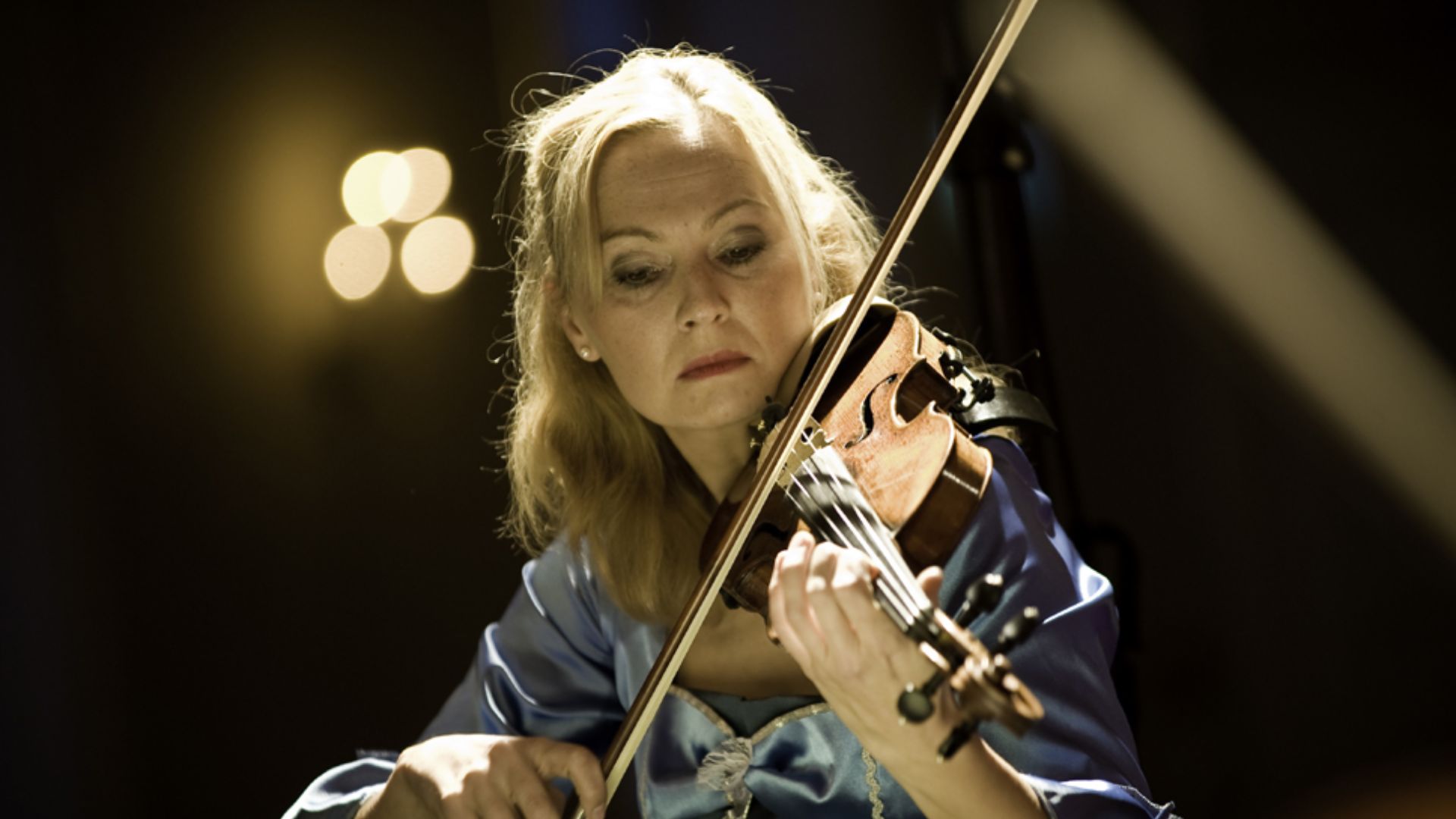The Musical Prodigy: 10 Fascinating Facts About Mozart & 10 Of His Most Influential Works
The Musical Prodigy: 10 Fascinating Facts About Mozart & 10 Of His Most Influential Works
Secrets Behind the Symphony
Wolfgang Amadeus Mozart remains one of history’s most iconic composers. His music, composed across a remarkably short life, continues to inspire awe for its innovation. However, behind the genius, there’s a story filled with surprising details. Here’s a look at ten fascinating facts that reveal the man behind the masterpieces.
 Christian Leopold Bode on Wikimedia
Christian Leopold Bode on Wikimedia
1. Composing At Five, Performing At Six
Mozart’s talent was so extraordinary that he began composing music at just five years old. By the time he was six, he was already performing in front of royalty across Europe. Interestingly, his early compositions were full of nuance and charm.
 Possibly Pietro Antonio Lorenzoni on Wikimedia
Possibly Pietro Antonio Lorenzoni on Wikimedia
2. Master Of Every Musical Style
Symphonies, operas, chamber music, piano concertos—he composed in virtually every genre of his time. He mastered the art of symphonic structure and created operas that combined character development and intricate musical themes.
3. Changed The Face Of Classical Music
With works like The Magic Flute and Don Giovanni, Mozart revolutionized classical music. But it wasn’t just opera; his symphonies, including Jupiter Symphony, introduced emotional layers. That’s how he took the conventions of classical music and injected his own touch.
 Mozart: Symphony No. 41 Jupiter | Nikolaus Harnoncourt & Concentus Musicus by DW Classical Music
Mozart: Symphony No. 41 Jupiter | Nikolaus Harnoncourt & Concentus Musicus by DW Classical Music
4. Struggled With Financial Problems
Despite his fame, he spent most of his life living paycheck to paycheck. His financial woes were exacerbated by an unstable relationship with patrons, who could be unreliable. It’s ironic that a man who created such grand music often found himself financially broken.
5. He Was A Virtuoso Pianist
Mozart’s passion for the piano was evident in his prolific number of piano concertos, which were composed for himself to perform. Take Piano Concerto No. 21, for instance, known for its beautiful second movement. Every time he sat at the piano, he communicated with a depth that only a few can ever achieve.
6. Composed Over 600 Works
Over the course of his short life, Mozart composed an astonishing 600+ works, including symphonies, operas, and concertos. His productivity is even more impressive when you consider that he wrote many of these pieces under tight deadlines.
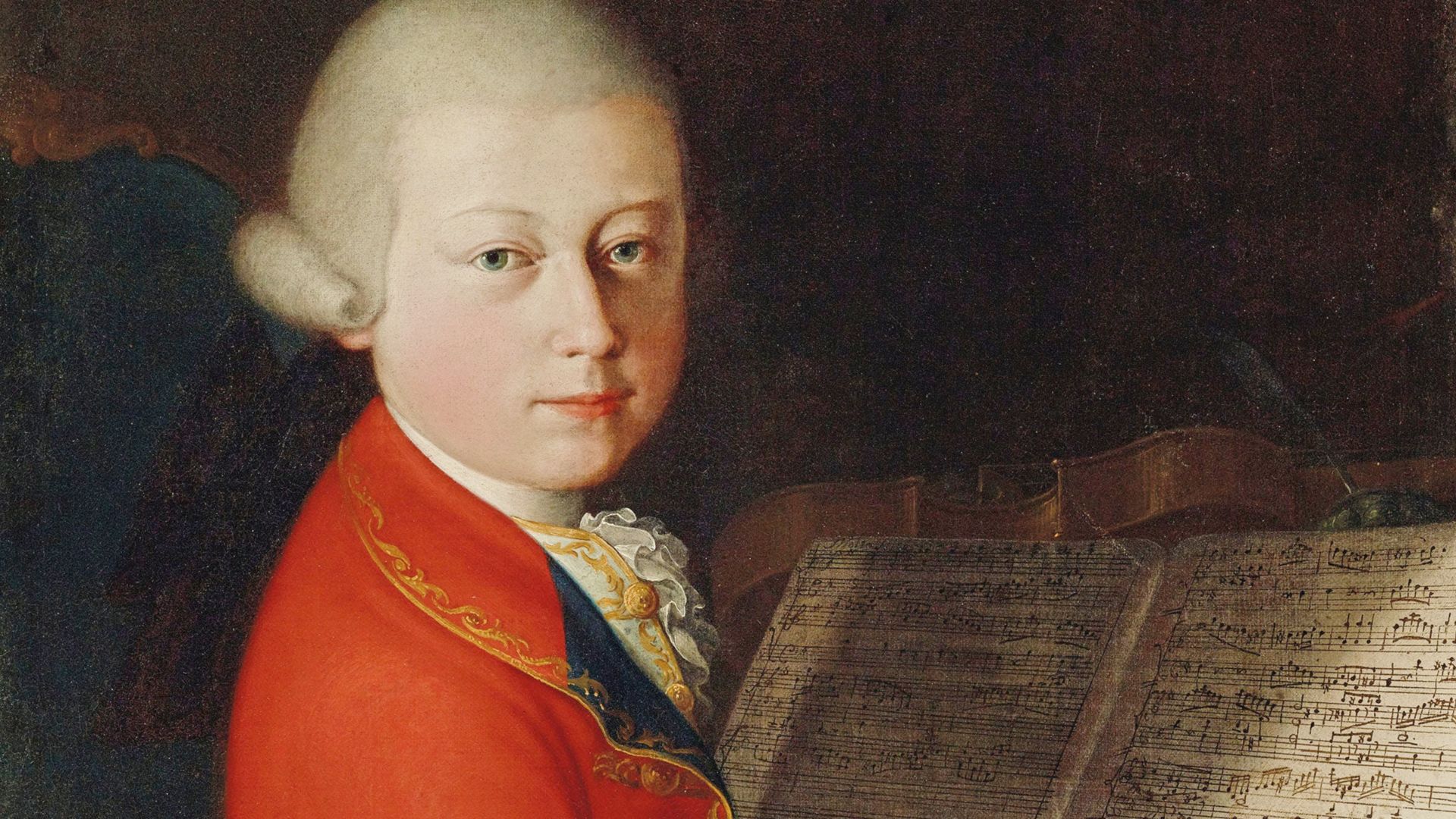 Anonymous, attributed to Saverio Dalla Rosa or Giambettino Cignaroli on Wikimedia
Anonymous, attributed to Saverio Dalla Rosa or Giambettino Cignaroli on Wikimedia
7. Opera Like You’ve Never Heard Before
Operas like The Marriage of Figaro told stories that were as complex and multi-dimensional as the music itself. What set him apart was his ability to intertwine the voices of the singers with the orchestra, making them both equally important in telling the story.
 Internet Archive Book Images on Wikimedia
Internet Archive Book Images on Wikimedia
8. He Was Fluent In Italian
While his native tongue was German, Mozart’s fluency in Italian opened doors to the world of opera. This is because Italian was the international language of opera at the time, and it helped cement his place in European musical culture.
 Antonio Maria Nardi on Wikimedia
Antonio Maria Nardi on Wikimedia
9. Family Played A Major Role In His Music
His father, Leopold, was a musician and composer who encouraged Mozart to hone his talents from an early age. Though Leopold was a strict teacher, his guidance played a crucial role in Mozart’s early success. His sister, too, was an accomplished musician in her own right.
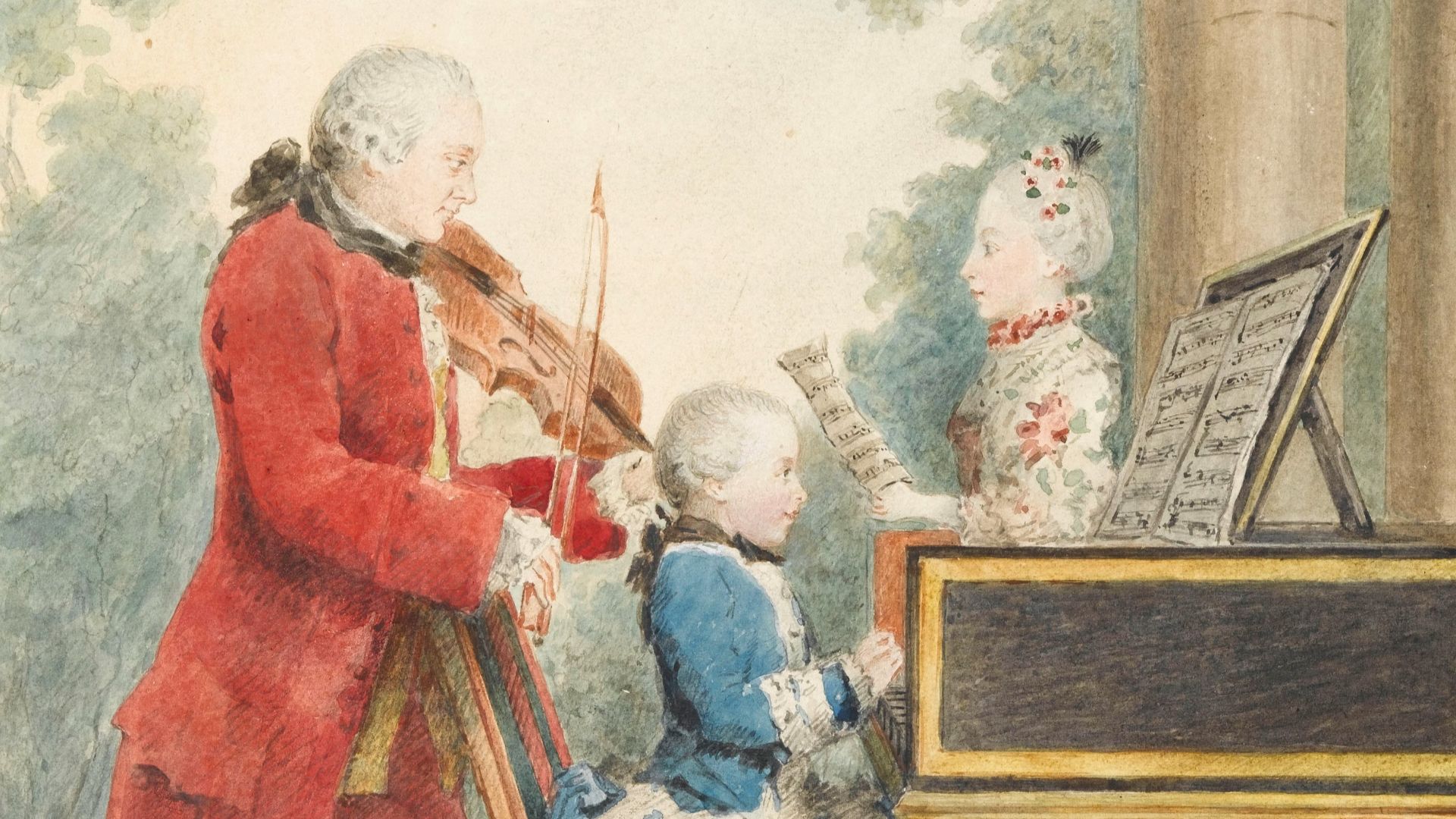 Louis Carrogis Carmontelle on Wikimedia
Louis Carrogis Carmontelle on Wikimedia
10. Died Under Mysterious Circumstances
Mozart’s sudden and early demise at the age of 35 has intrigued and puzzled people for centuries. While the official cause is thought to be some form of illness, countless theories continue to circulate about the true reasons behind his passing.
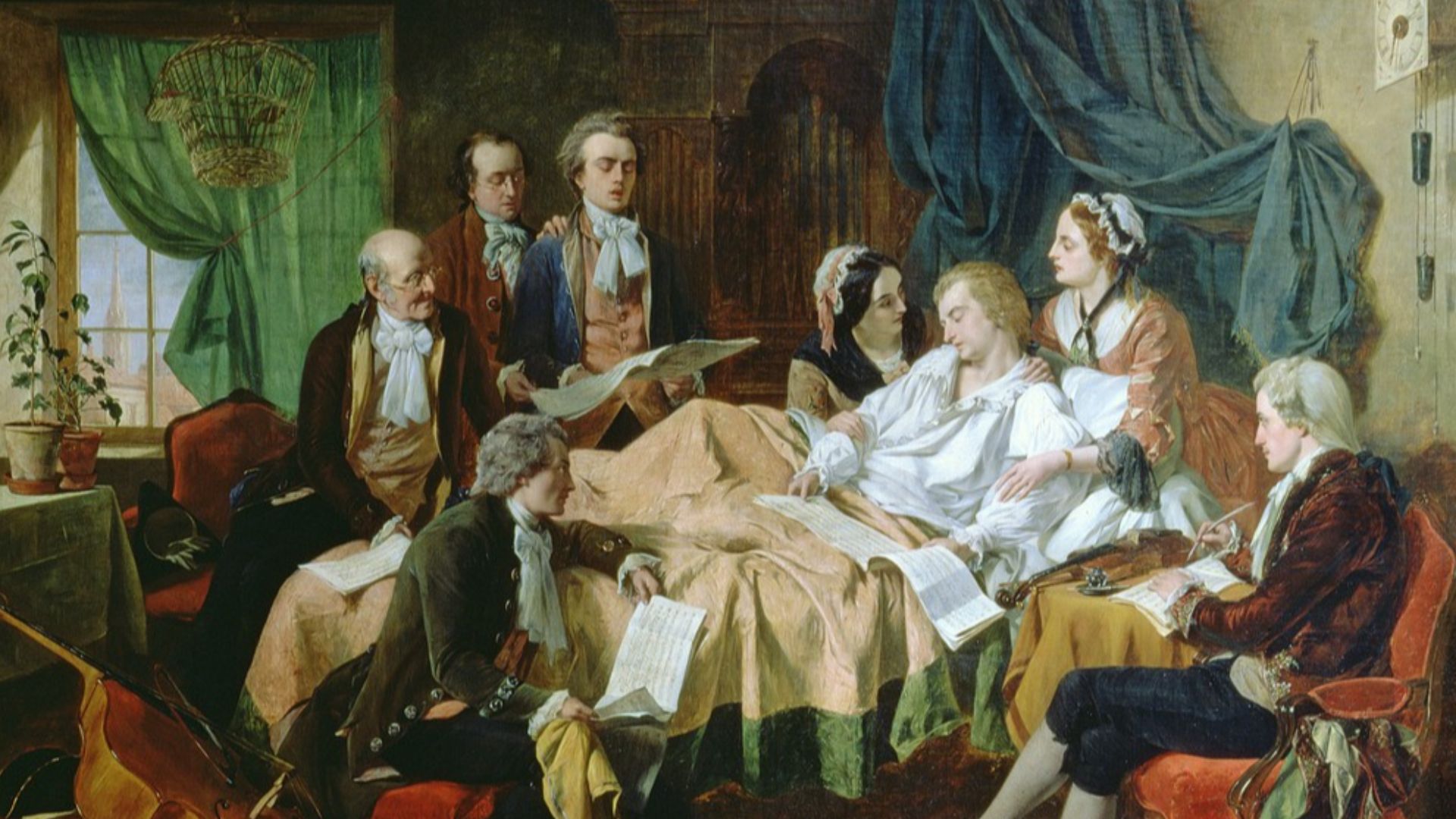 Henry Nelson O'Neil on Wikimedia
Henry Nelson O'Neil on Wikimedia
Now, let’s flip the script and explore ten of his most influential works.
1. Symphony No. 40 In G Minor, K. 550
Symphony No. 40 is one of his most intense and passionate compositions, yet it was written in just a few weeks in 1788 amid a period of personal turmoil. The piece, with its stirring minor key, captures both melancholy and tension.
 Mozart: Symphony No. 40 in G minor K. 550 | CAMERATA Salzburg by CAMERATA Salzburg
Mozart: Symphony No. 40 in G minor K. 550 | CAMERATA Salzburg by CAMERATA Salzburg
2. Eine Kleine Nachtmusik (Serenade No. 13 In G Major), K. 525
Composed in 1787, this serenade has become synonymous with lighthearted classical music. While you might recognize it as a soundtrack favorite, there’s much more to Eine kleine Nachtmusik than its ubiquitous presence in many films.
3. Requiem In D Minor, K. 626
Mozart’s Requiem stands out not only as his final, unfinished composition but also as one of the most emotionally powerful works in the classical music canon. Composed in 1791, the piece remained incomplete at Mozart’s passing.
4. Piano Sonata No. 11 In A Major, K. 331 "Rondo Alla Turca"
Piano Sonata No. 11 in A Major, especially its third movement, “Rondo Alla Turca,” is a piece that has been etched into the minds of music lovers and pianists alike. This sonata was a product of Mozart’s time in Vienna, when he was working to perfect the form of piano music.
5. The Magic Flute (Die Zauberflote), K. 620
Filled with whimsical charm, The Magic Flute is an opera that blends fairy tales with profound symbolism. Premiering in 1791, just a few months before Mozart’s passing, it has endured for its unique combination of drama and comedy.
6. Symphony No. 41 In C Major, K. 551 "Jupiter"
The grandiosity of Mozart’s Jupiter Symphony, composed in 1788, is unmatched. Its innovative use of counterpoint set it apart as a benchmark in symphonic writing. It is often referred to as a triumphant conclusion to his symphonic legacy.
7. Don Giovanni, K. 527
Don Giovanni is a dark opera that blends comedy, tragedy, and the supernatural. It tells the story of the infamous seducer and murderer, Don Giovanni. This opera's dramatic music influences operatic works to this day.
 Mozart: Don Giovanni, K. 527 / Act 1 - "Là ci darem la mano" (Live) by Luciano Pavarotti
Mozart: Don Giovanni, K. 527 / Act 1 - "Là ci darem la mano" (Live) by Luciano Pavarotti
8. Violin Concerto No. 3 In G Major, K. 216
Mozart’s Violin Concerto No. 3 stands out for its elegance and grace. Its first movement is filled with vivacious exchanges between the violin and orchestra, while the second movement provides a moment of reflection with its almost song-like violin lines.
 Janine Jansen: Mozart Violin Concerto No.3 in G Major, K.216 (2017) by Torns B.
Janine Jansen: Mozart Violin Concerto No.3 in G Major, K.216 (2017) by Torns B.
9. Piano Concerto No. 21 In C Major, K. 467
This is the kind of piece that washes over you, soothing your soul at the same time. While the first and third movements are more energetic, it’s the second movement that truly lingers in your mind, leaving a sense of serenity.
 Mozart - Piano Concerto No.21, K.467 / Yeol Eum Son by taky_classic
Mozart - Piano Concerto No.21, K.467 / Yeol Eum Son by taky_classic
10. Cosi Fan Tutte, K. 588
In this one, the story revolves around two men who test the faithfulness of their fiancees through a series of clever tricks. Despite its comedic nature, Mozart’s ability to explore the human condition with such clarity makes Cosi fan tutte one of his most enduring operas.
 È amore un ladroncello ('Love is a thief') - Così fan tutte - W A Mozart by Garsington Opera
È amore un ladroncello ('Love is a thief') - Così fan tutte - W A Mozart by Garsington Opera
KEEP ON READING
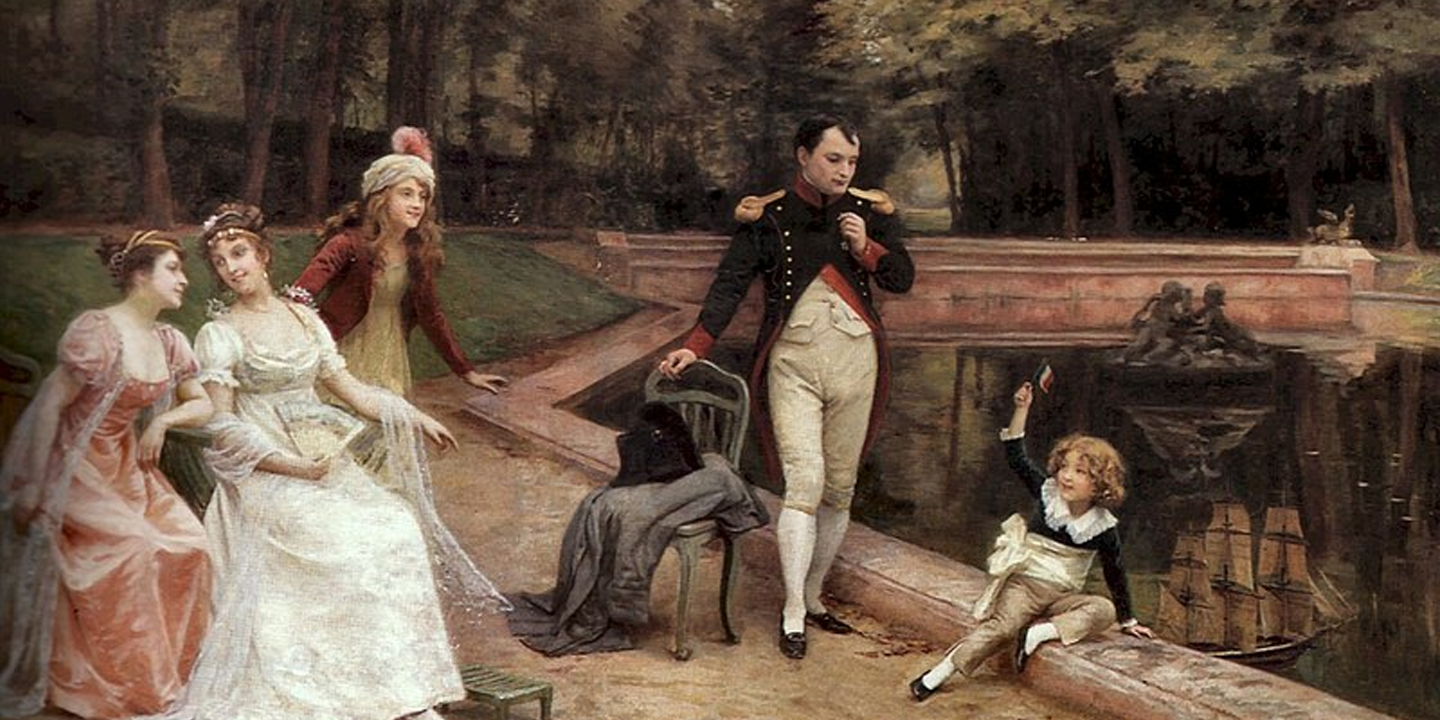
The 20 Most Recognized Historical Figures Of All Time
The Biggest Names In History. Although the Earth has been…
By Cathy Liu Oct 4, 2024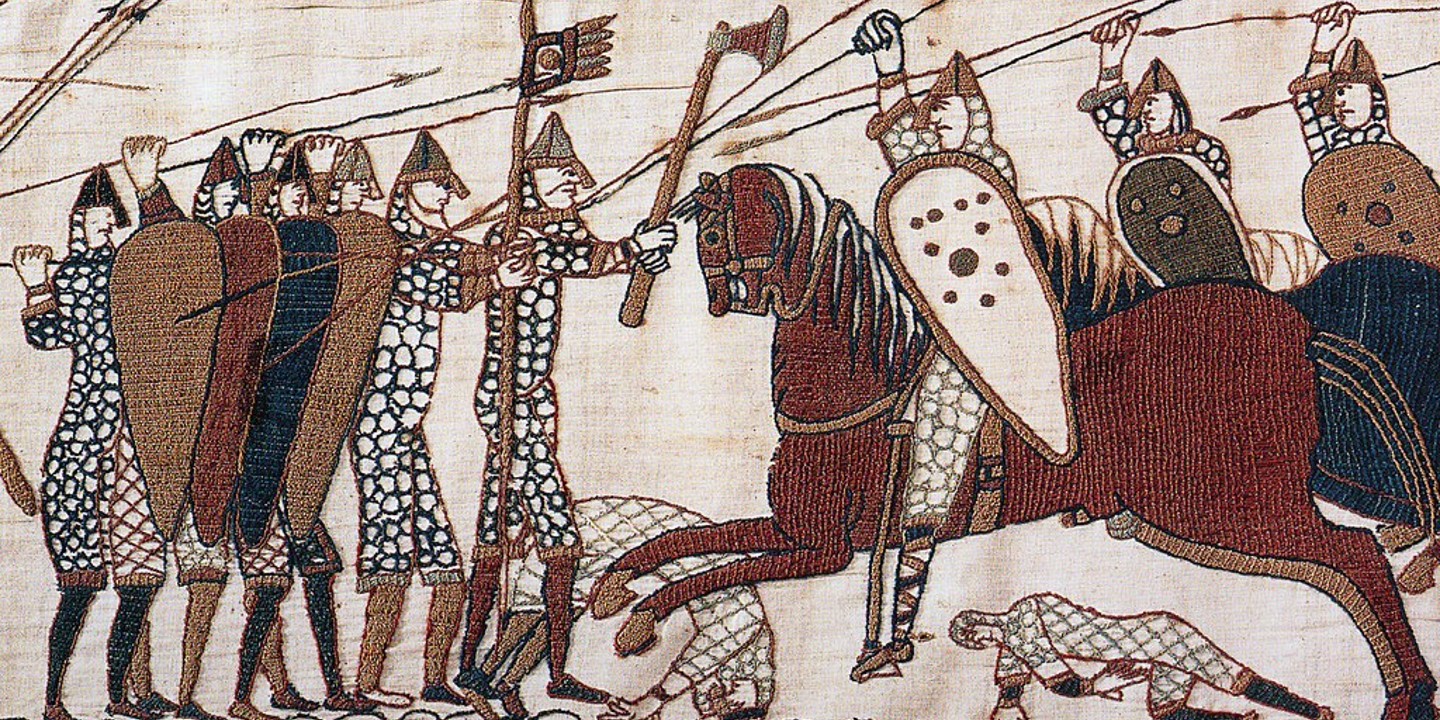
10 of the Shortest Wars in History & 10 of…
Wars: Longest and Shortest. Throughout history, wars have varied dramatically…
By Emilie Richardson-Dupuis Oct 7, 2024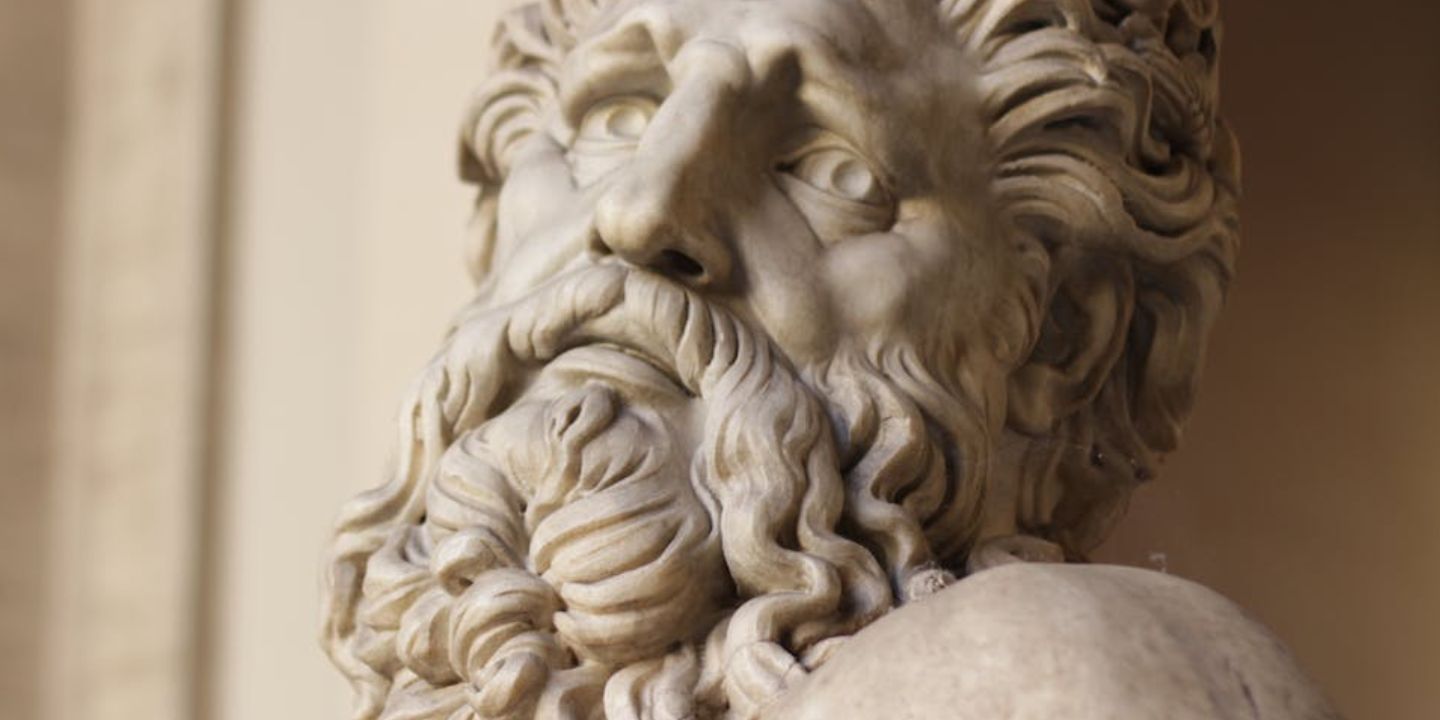
10 Fascinating Facts About Ancient Greece You Can Appreciate &…
Once Upon A Time Lived Some Ancient Weirdos.... Greece is…
By Megan Wickens Oct 7, 2024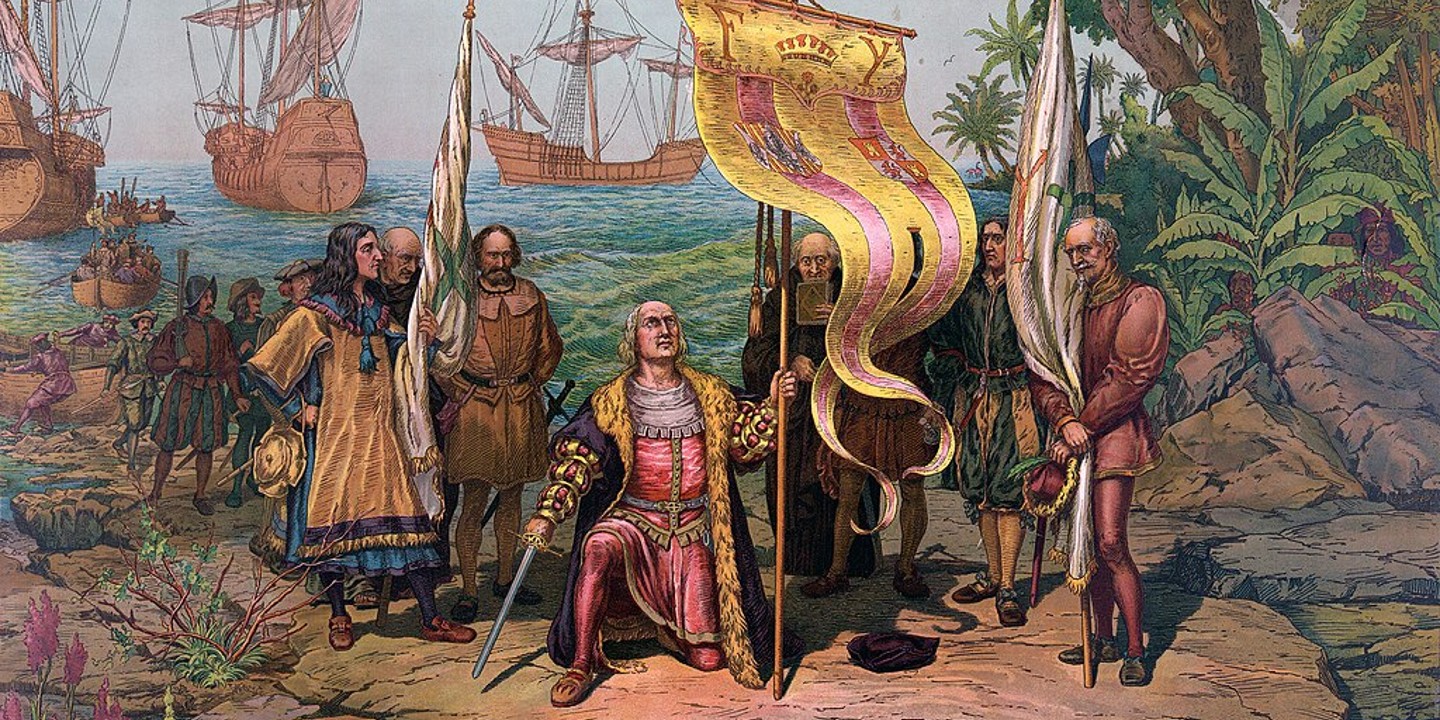
20 Lesser-Known Facts About Christopher Columbus You Don't Learn In…
In 1492, He Sailed The Ocean Blue. Christopher Columbus is…
By Emilie Richardson-Dupuis Oct 9, 2024
20 Historical Landmarks That Have The Craziest Conspiracy Theories
Unsolved Mysteries Of Ancient Places . When there's not enough evidence…
By Megan Wickens Oct 9, 2024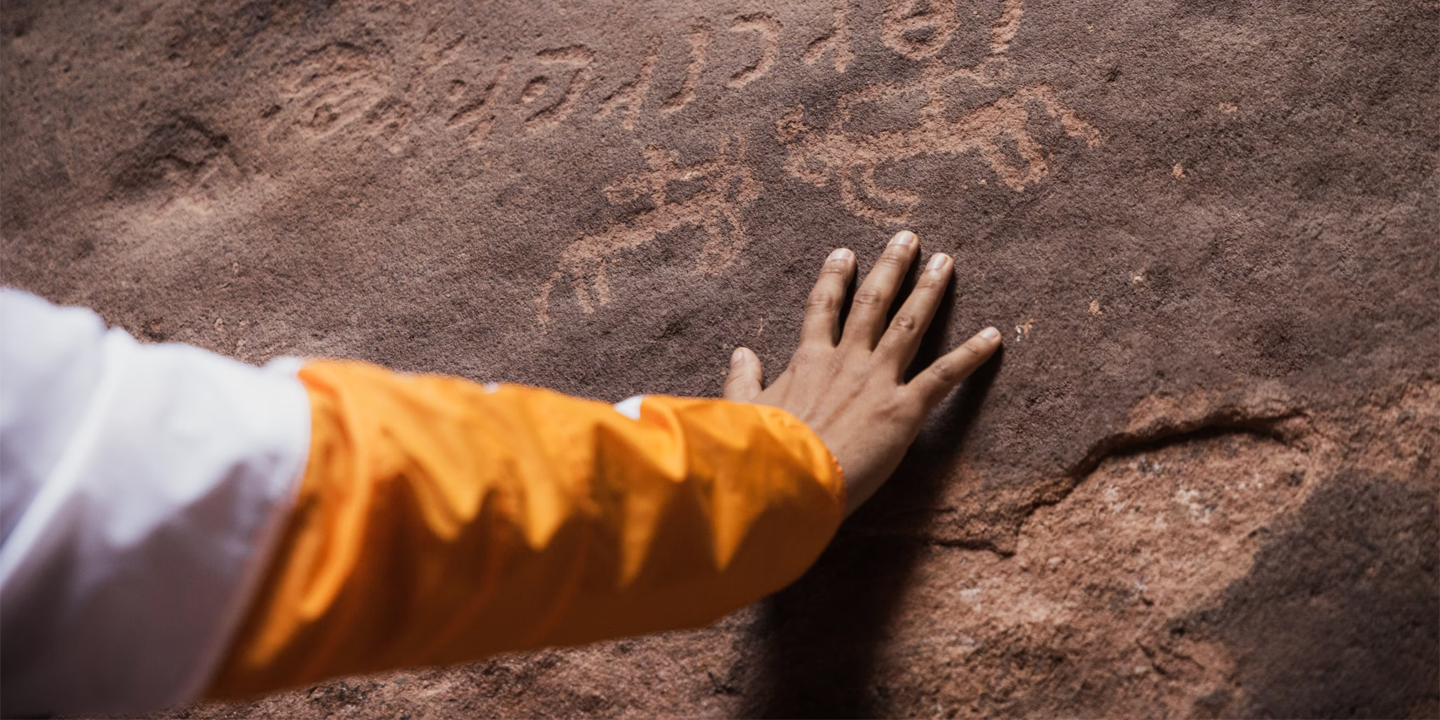
The 20 Craziest Inventions & Discoveries Made During Ancient Times
Crazy Ancient Inventions . While we're busy making big advancements in…
By Cathy Liu Oct 9, 2024

